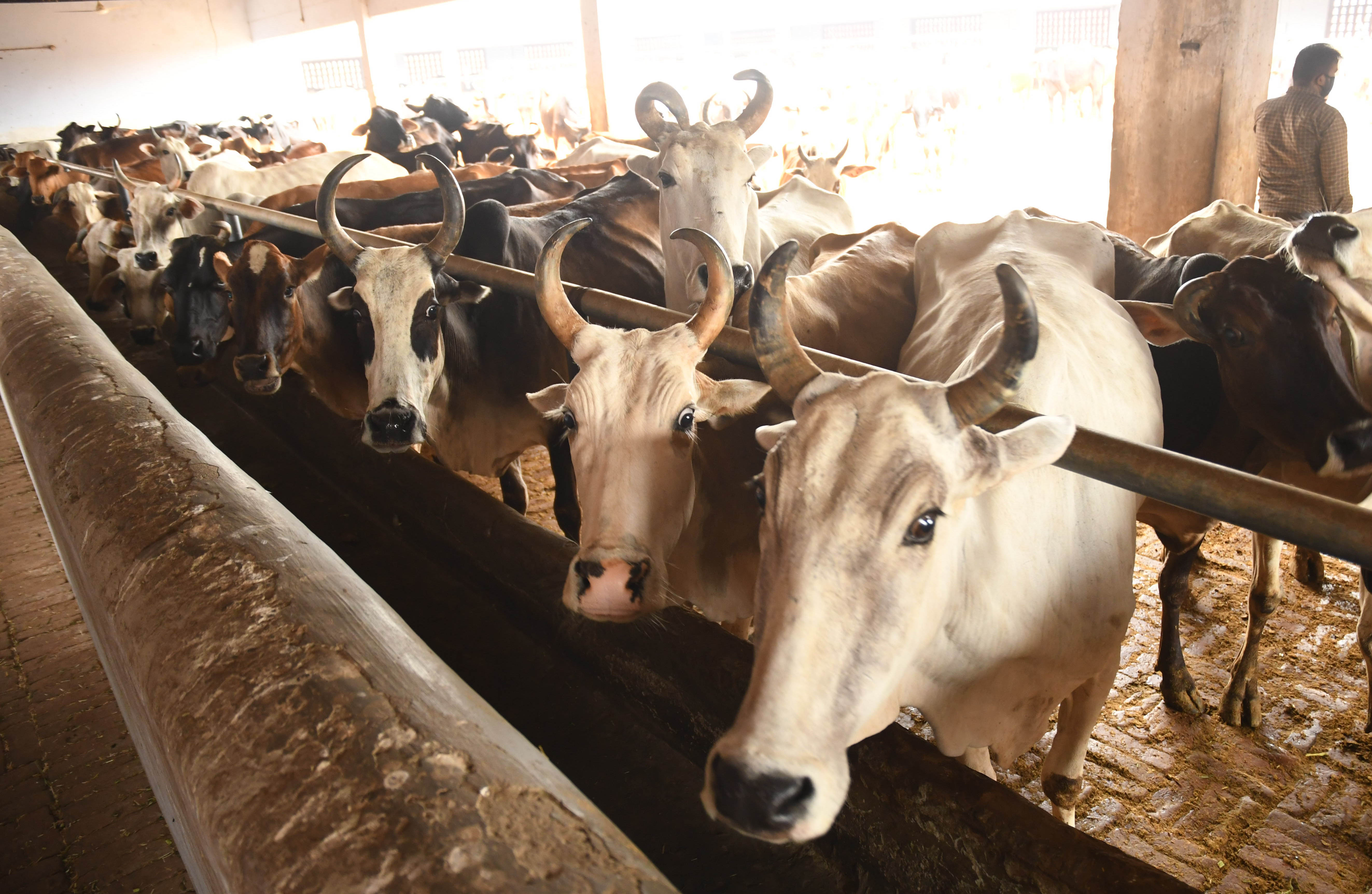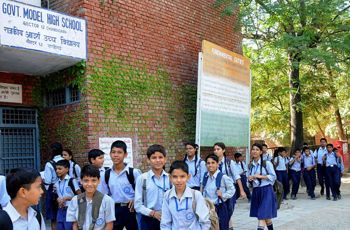
Cows at a gaushala in a village. file
Ludhiana, April 12
Like in humans, vaccination in animals is also important and plays an important role in their overall health. Today cure of most diseases has been found, but the treatment is expensive for dairy owners. Need is to pay more attention towards the prevention of diseases than to get treatment.
“Vaccination is the practice of artificially building body’s immunity against certain infectious diseases by calling it a biological agent vaccine,” said Ajaib Singh from Krishi Vigyan Kendra, Hoshiarpur.
Experts from Guru Angad Dev Veterinary and Animal Sciences University discussed how to make vaccination programmes a success?
“It important to know the effectiveness of a particular vaccine, the amount of dose and its route and storage conditions. Some aspects should be considered for making the immunisation programmes a success,” say experts. “Do not vaccinate sick and weak animals. Do not give any antibiotics to animal for two weeks after vaccination. Animal should not be subjected to any kind of stress for two weeks after vaccination such as sudden change in feed or change in shade. Vaccination of animals during advance pregnancy can be avoided. However, in most cases vaccines are usually safe,” experts added.
“Calves should be vaccinated only between four to six months. During any outbreak of the disease, a vaccination programmes should never be started. Ensure that the vaccine has not expired and its cold chain (2° to 8°C) is intact. Keep a record of the brand, type and batch of vaccines used for different animal species along with dates,” say experts.
“For good immunity, the animal should be vaccinated one to two weeks before deworming. Vaccines for different diseases should not be used together. There must be a gap of 21 to 28 days between one vaccine and another. Immunisation usually takes two to three weeks to provide protection against the disease. Therefore, it should be done at least one month before the time of possible danger of the disease,” experts added.
“Vaccines manufactured by different companies recommend different doses and boosters (re-vaccination). So, we need to know more about the vaccine we are using. During herd vaccination, make sure that each animal is given the full amount of vaccine. Be sure to follow the vaccine manufacturer’s instructions and try to get animal vaccinated by a specialist veterinary doctor or veterinary inspector,” say experts. — TNS
Testing programmes
In the early stages, animals should be tested for tuberculosis (TB), brucellosis and John’s disease (JD) every six months. Later, depending on the health status of the herd, an annual test may be performed. Sick animals should be kept separate from the herd. In addition, strict hygiene measures must be taken. Breeding bulls should be completely free from diseases.
Join Whatsapp Channel of The Tribune for latest updates.



























